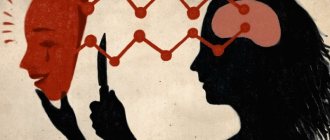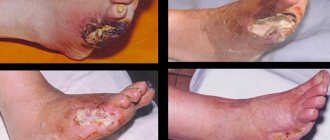Abulia is a pathological lack of will in a person. The word "Abulia" is of ancient Greek origin and consists of two particles a - the universal negative particle, and boulia - will.
The patient becomes extremely passive and uninitiative. All this happens due to lack of will. But what is will and what is its role in our lives?
Will is a very important mental function. Without it, we turn into passive, as they say, plants that cannot satisfy even their basic needs. It is an independent component of mental activity, and the most important component in the structure of the psyche for the implementation of many mental processes (memory, attention, thinking, motor activity). With the help of will, a person can control his behavior, take purposeful actions, satisfy his needs and move towards goals.
The first function of the will is incentive. With its help, we can take action, move towards a goal, provide for our needs and overcome obstacles that arise along the way. The incentive function manifests itself both in large-scale situations and in the most ordinary ones. The moment you get up from the couch to grab a bite to eat and the moment you spend years moving to the top of the career ladder - all this is an incentive function of the will.
But it is important to understand that not all human activity is dictated by will. For example, when a stone flies at you and you dodge it, this is not will, but a defensive reaction. This action of yours is determined by the situation that has arisen, and not by your will. The difference between volitional action is its arbitrariness and goal orientation.
The second function of the will is inhibitory. Its main task is to stop those desires and impulses that are undesirable for a person’s behavior in a particular situation. That is, with the help of volitional inhibition, a person can stop or prevent those of his actions that contradict his beliefs, worldview and upbringing. I.P. Pavlov believed that volitional inhibition requires more significant effort from a person than active action.
Signs of abulia
The main signs of abulia are lack of will. What happens to a person whose willpower is significantly reduced?
Abulia is a medical term for a painful state of lack of will in a person. He cannot perform even basic actions and does not find the strength to make a decision. Even if this decision is extremely necessary, and he realizes it.
A less pronounced condition, characterized by a decrease in desires, motives and volitional activity, is called hypobulia. Compared to abulia, in this case the will is not completely absent, but is only in a weakened state. Patients have difficulty choosing a goal and concentrating on it. They are lethargic, passive, indifferent and can also remain in one position for a long time, as with severe abulia.
It is important to note that abulia is not an independent disease. Experts always consider a painful lack of will as part of certain mental or neurological diseases.
These are neurological diseases such as organic brain lesions: tumor, traumatic brain injury and brain atrophy. In rare cases, this syndrome may occur in people who have had a stroke. Abulia can be caused by a lack of blood circulation to the brain, damage in the frontal lobe, anterior cingulate cortex or basal ganglia.
Abulia is observed in mental illnesses such as depression, schizophrenia, and atrophic processes in the brain.
There are also cases of congenital abulia with severe mental retardation, the so-called. apathetic oligophrenia.
Diagnosis of the condition
Only a competent certified specialist - a psychiatrist - can identify the presence of hypobulia and abulia. The doctor talks in detail with the patient and his relatives, gets acquainted with medical documentation and clinical studies. It is important to distinguish the pathology of the will from simple laziness, which is treated through occupational therapy and increased motivation.
For many people, the condition of abulia is extremely difficult to understand. How is it that a young and outwardly strong and healthy young man cannot do anything, leave the house? Unfortunately, this is a feature of many abulia conditions. The inability to engage in purposeful activities and weakness of will lead to real stigmatization and disability in the end.
Abulia is a mandatory symptom of schizophrenia, but abulia may not appear immediately, but as the personality defect increases (from a year to decades). The so-called negative symptoms of schizophrenia lead to disruption of the social and work adaptation of patients; they stop taking care of themselves, become isolated and have difficulty leaving the house.
Clinical examinations such as MRI and CT will help differentiate from other diseases. With their help, the doctor will be able to see the foci of brain damage in a particular pathological condition.
Abulia with depression
Typically, as already mentioned, abulia is observed in depression, schizophrenia, dementia, and sometimes after a stroke.
Abulia, that is, a decrease and loss of impulses, is not only an element of a mental defect in schizophrenia, but no less expressively occurs during a period of depression. Here, abulia is reversible synchronously with the elimination of the depressive syndrome. With depression, abulia is much better understood by patients than with schizophrenia, and, moreover, it differs in that it is painfully experienced by patients, accompanied by complaints and a desire to get rid of it. Often, depressed patients, when describing their condition, put abulia first and say that they cannot bring themselves to do even the most basic things - get up, get dressed, cook something, wash, and everything else. Thus, the independent nature of this symptom, which is not at all an integral part of the apathetic defect, becomes clear. And the reversibility of abulia demonstrates that this disorder can, in principle, be corrected in patients with apato-abulia defect. In the self-esteem of depressed patients, the reversibility of abulia is usually perceived by them as an encouraging sign of upcoming recovery, which indeed reflects the parallelism of the severity of abulia and hypothymia (depressive affect or low mood).
Symptoms of weak will
Let's find out how pathological “softness” differs from individual manifestations of inaction, which are sometimes inherent in any person.
The first and main difference is the duration of manifestations. Normally, a person cannot constantly be in a state of inactivity; it arises due to fatigue and protects against overwork. Once energy reserves are replenished, a person’s natural need is to continue to be active. We can talk about weakness of will as a pathology if this condition accompanies a person for a long time, and he cannot cope with the problem on his own.
In addition, insufficient motivation is often the cause of weakness of will and doing nothing. Sometimes you should ask yourself why you are doing what you are doing, whether it is necessary for you or for someone else. Our brain can subconsciously “boycott” useless things that are imposed on us from the outside and do not affect the quality of our life. But if you can’t bring yourself to complete even an obviously necessary task, most likely it’s a matter of weakness.
Lack of will affects not only productivity, but also communication with people, self-awareness, and lifestyle. So, a person may exhibit the following signs of weak will:
- diffidence;
- difficulty in making decisions;
- inability to force yourself to complete even a simple task;
- inability to prioritize;
- failure to keep promises made to oneself;
- inability to resist temptations;
- lack of understanding of one's own desires;
- lack of one’s own opinion, its sudden change depending on the circumstances;
- statement, suggestibility;
- addiction tendency;
- feeling of worthlessness, low self-esteem.
Of course, all these manifestations of lack of will cannot but influence life. Let's figure out what consequences a person can expect if these symptoms are not overcome.
Abulia. Symptoms
What are the symptoms of abulia? Patients may be aware of their lack of initiative, passivity, lack of desires and motivation. In the early stages, abulia can be perceived as ordinary laziness. Therefore, this decrease in volition, as a symptom of the disease, must be diagnosed by a doctor.
Patients suffering from abulia do not experience any urges. They are partially or even completely weak-willed, have no motivation for action, are passive, and do not show initiative in activity. Their actions and thinking are essentially slowed down. If you ask a patient with abulia a question, he will answer it not immediately, but after some time. It gets to the point that a person in this condition cannot even eat, drink, take a shower or wash himself. Lack of will can develop to the point of inability and unwillingness to provide all one’s basic vital needs.
Abulia is classified according to its dynamics. It is this approach to classification that helps to better select the optimal treatment and give a prognosis for the development of the disease. Pathological lack of will is divided into short-term, periodic and permanent.
With short-term abulia, the patient retains the will and awareness of actions, but it is difficult for him to do something. It is diagnosed with asthenic syndrome, neurotic disorders and adynamic depression.
Periodic abulia is observed in depression and depressive-delusional symptoms in schizophrenia.
With constant abulia , as the name implies, lack of will accompanies the patient constantly, and it is difficult to treat. Persistent abulia occurs with increasing schizophrenic apatho-abulic defect, traumatic brain injury and atrophic processes in the brain.
Diagnosis of abulia is carried out by a psychiatrist. For diagnosis, observation of the patient and his behavior is necessary. Collecting information can take a long time, from several days or more. To clarify the diagnosis, computed tomography (CT) and magnetic resonance imaging (MRI) are also performed. Using these methods, organic brain lesions can be detected.
What is abulia?
Definition of the concept
The term abulia is used in psychiatry to designate a variant of the pathology of the will.
Abulia, as a rule, is only a component of any pathological syndrome and mental illness in general. A person understands intellectually, for example, that he needs to complete a task or do an important thing, but he lacks the motivation and initiative to complete this act. Lack of motivation to perform an action, aspirations and desires are the main manifestations of a violation of the volitional sphere. When we say that a person is strong-willed, we mean such personality qualities as determination, independence, responsibility, and perseverance. Also, volitional qualities include such altered characteristics as stubbornness, suggestibility, indecisiveness, and inability to restrain one’s emotions.
Frequency of occurrence
In a doctor’s practice, the state of abulia is woven into the clinical picture of many not only mental, but also neurological diseases. Most often it can be found in schizophrenia, depressive disorders, organic brain lesions, and senile dementia.
The pathology of the will is widespread everywhere, regardless of gender, age, race, or social level. For objective reasons, it is not possible to determine the frequency of occurrence.
Classification of abulia
Will is a conscious and complex mental process that is aimed at achieving a goal and ultimately obtaining pleasure for a person. Thus, an act of will is planned and supported by a person’s motivation to overcome all obstacles, both external and internal. We always want something, desire something, strive for something. This does not happen because people always lack or lack something.
This is an instinct inherent in nature itself. It is necessary for the survival and continuation of the human race. Now, in conditions of market oversaturation with products, social stratification, and many other reasons, this instinct has undergone some changes. The vector of action is not aimed at protecting oneself or attacking for the sake of survival, but at the desire to obtain the benefits of civilization, comfort, and beyond wealth.
It is worth noting that the motives of behavior are divided into higher and lower. The lower (infantile and egoistic) are aimed at obtaining pleasure, physiologically, or benefit for themselves, to the detriment of other people. Higher (altruistic) – the desire to benefit society.
So, an act of will is a process. And a violation can occur at any stage of this process. The pathology of motivation at the initial stage can be represented by its strengthening, oppression or perversion.
Suppression of the volitional sphere includes anorexia, decreased sexual desire, inhibition of defensive reactions, hypobulia and abulia. Hypobulia is an initial condition characterized by a decrease in the volitional component in the personality structure. The extreme severity of hypobulia is called abulia, i.e. volitional impulses and motives are completely absent.
Parabulia refers to a perversion of the volitional component (obsessive, impulsive and compulsive desires). Hyperbulia occurs when a volitional stimulus increases (bulimia, hypersexuality, etc.).
Apatico-abulsic syndrome is a complex of symptoms of the pathology of the will. Apathy in some ways can be correlated with hypobulia, while abulia is a more serious symptom. There is also apato-akinetic syndrome, which is accompanied by immobility of a person.
Apato-abulic syndrome
Patients with apatico-abulic or apatico-abulic syndrome (defect) are characterized not only by abulia, but also by emotional emasculation. In the affective sphere, this is emotional impoverishment, indifference, including coldness towards loved ones, their problems or achievements. These changes that occur in a patient with schizophrenia increase gradually. The final stage of the apato-abulic defect in patients with schizophrenia, as already mentioned, is a constant stay in bed, when they are unable to provide for their vital needs and do not monitor hygiene. They may not wash, not get a haircut, and sleep in bed in outerwear. In extreme cases, they even defecate on themselves. There is no way to attract such patients to activity, because they lose not only their will, but also their desires. They speak little, or their speech is monotonous and unemotional. Interacting with other people is not at all interesting for them; they refuse to communicate under the pretext of fatigue.
There are various characteristic combinations of abulia with other disorders. For example, if a person experiences immobility with abulia, this condition is called abulic-akinetic syndrome, which may be a possible sign of a pathological process of frontal callous localization. In the case of apathy (indifference, decreased emotional reactions) with abulia, this is apathetic-abulia syndrome, which is the main variant of the schizophrenic defect.
What kind of disease is this, the nature of the term, the essence
Apathy is the so-called emotional impoverishment. Its main manifestation is the lack of even minimal interest in life. At the same time, the person does not pay attention to either positive or negative events.
He also no longer wants to make decisions on his own. In turn, abulia is a manifestation of lack of will, as well as spinelessness. That is, there are no targeted actions on the part of the patient.
The most detailed description of this disorder was published in 1958. In a work on psychology, it was stated that apathetic-abulic syndrome is characterized by a sharp drop in energy potential. If you compare what kind of life a person led before and after the development of pathology, you can see clear differences in behavior.
At the same time, specialists held conversations with the patients’ relatives and took into account their opinions. The research also revealed that negative transformation does not occur immediately, but accumulates gradually. If you timely note the moment when the first serious changes appeared, then you can exclude the pathological extent of such psychological deviation.
Apato-abulic syndrome in schizophrenia
Apato-abulic syndrome most often occurs in schizophrenia. Patients who begin to develop these symptoms gradually, from mild passivity and indifference, reach complete emotional coldness and indifference.
Abulia is one of the main symptoms of schizophrenia. In such patients who suffer from this mental disorder for a long time, emotional decline occurs, the schizophrenic apatho-abulic defect increases, in which a weakening of the will and an increase in abulia are observed. The longer the schizophrenic process proceeds, the more passive the patient becomes, eventually ceasing to care for himself, monitor his diet and hygiene, spending most of his time in bed. Zharikov N.M. recalls this in the “Textbook of Psychiatry” for 2002. Sometimes in these patients with a pronounced apatho-abulic defect in schizophrenia, parabulia is observed - a perversion of the will, when basic physiological drives can be disinhibited, for example, excessive sexuality and gluttony are observed.
What is abulia?
In neuroscience, abulia (from the Greek: ἀ- - negative particle and βουλή - will), refers to a lack of will or initiative and can be considered a motivational disorder. Abulia falls in the middle of the spectrum of impaired motivation, with apathy being less severe and akinetic mutism more severe than abulia. The condition was originally considered a disorder of the will, and the abulic cannot act or make decisions independently; and their condition can range from subtle to overwhelming.
Abulia. How to treat the disease
How to treat abulia? Treatment for abulia is aimed at the underlying disease of which it is a symptom. Medications used in the treatment of abulia include antidepressants, antipsychotics, nootropics, and cholinesterase inhibitors.
To treat apato-abulic syndrome (defect) in schizophrenia, antipsychotic drugs with an activating spectrum of action are used. Some authors recommend psychostimulants. However, in this case you need to be extremely careful, because the use of these drugs can lead to exacerbation (resumption) of productive symptoms, increase delusions and hallucinations. A psychiatrist must select the correct drug treatment that will have a beneficial effect on apatho-abulic manifestations in patients with a mental disorder.
Modern medicine has learned to cope with many diseases, and a good specialist can help most patients. The main thing is to seek help in time and not delay. Then the chances of returning to your usual lifestyle and enjoying every new day increase.
We constantly detect plagiarism on our materials without providing a clickable follow link to them. In this case, without warning, we turn to Google DMCA , which leads to pessimization of the plagiarist. On the contrary, we welcome the popularization of our materials, but with the obligatory active follow link to this page psyhosoma.com/abuliya/ .
What symptoms suggest abulia in a person?
It is difficult to identify abulia in the earliest stages of its development. The speed of the psychopathological process depends on the disease that caused abulia.
You need to sound the alarm if you notice that a person:
- became less emotional;
- finds words with difficulty, takes a long time to answer questions asked;
- stopped gesticulating and became stiff;
- has difficulty starting a new business and/or does not complete it;
- became withdrawn, stopped communicating with friends and family;
- lost his former hobbies;
- neglects personal hygiene (does not wash, does not comb, does not shave, does not wash clothes, etc.).
It is necessary to consult a specialist to exclude abulic syndrome as part of the underlying psychoneurological disease.
How to deal with abulia?
The question of how to deal with abulia can arise at any age.
If an elderly person has been exposed to this disease, the support and attention of loved ones is important. In adolescence and middle age, to prevent abulia, having hobbies is of great importance.
The sympathy of others should consist in the desire to stir up the patient. Various trips to new places, noisy banquets and celebrations, trips to nature, and communication with animals help with this. Try to involve the patient with abulia in work, emphasizing that you cannot do without his help. If this state does not drag on, then you can successfully bring a person out of it. Otherwise, severe depression is diagnosed.
A prolonged course of abulia may require the mandatory intervention of a specialist (psychologist, psychiatrist) and medication. In addition, various psychoanalytic courses and psychotherapeutic techniques have a good effect.
Doctors place special emphasis on the fact that abulia can be a consequence of addiction, and is one of the indicators of secretive, “latent” alcoholism or drug addiction
The attention of others often helps to cope with this condition.
If the patient realizes some responsibility and that someone needs him, he has a new incentive for volitional actions, a desire to realize himself and live up to the expectations placed on him. This is especially effective in the case of abulia in older people, since at this age thoughts of loneliness, indifference on the part of loved ones and relatives, and awareness of one’s own uselessness most often arise.
Main signs of the disease
Abulia has been subjected to many descriptions. This disorder became known in 1938, but there is still no clear picture of the disease. Among the clinical manifestations the most basic are:
- speech retardation;
- spontaneous movements;
- difficulty in performing specified movements;
- suppressed emotionality;
- isolation;
- children lose interest in games;
- passivity and indifference.
The very first symptom of the disease is indifference to oneself. A person does not wash his face, does not brush his teeth, and completely neglects his appearance. A patient with abulia thinks for a long time about the answer to the simplest questions, but does not seem to control his own hands or jerks his head. Often patients lose a lot of weight due to loss of appetite. The disease can manifest itself in a mild form and very quickly progress to a deep state of depression.
It should be noted that the incentive to action is so reduced that even with deep mental suffering and thoughts of suicide, a person is not able to harm himself. He simply has absolutely no strength for this.
Causes of abulia
There are many chances to encounter abulia yourself, since the reasons for its development and appearance are quite extensive. According to statistics, abulia manifests itself in people in large cities, since one of the causes of its occurrence is depression. And this condition is familiar to many.
If we list all the causes of abulia, we can identify the following:
- Head injuries.
- Infections or tumors.
- Stress.
- Schizophrenia.
- Stroke.
- Tendency to somatoform disorders.
- Mental vulnerability.
- As a consequence of illness or head injury, which disrupts blood circulation in the right hemisphere of the frontal zone.
- Meningitis or encephalitis.
- Heredity.
- Circular psychosis.
- Oligophrenia.
- As a consequence of borderline states: hysteria, psychasthenia or psychoneurosis.
The main symptom of abulia is loss of identity. A person loses motives and desires to do and achieve anything. This turns it into a vegetable.
Abulia in childhood is especially dangerous, because parents may mistakenly perceive it as a child’s weakness or laziness, although in fact he needs help.
The most dangerous is abulia based on heredity. Such a child shows all the symptoms from birth. He is inactive, calm, and not loud. Parents should not be happy about this, but worried, since the disease will not go away on its own, and late diagnosis will give unfavorable prognosis for treatment.
Abulia accompanies many diseases of the body, especially those related to the brain. The risk group includes people with the following painful conditions:
- Post-traumatic and post-stroke conditions.
- Hypoxia.
- Infectious diseases.
- Parkinson's, Pick's, Huntington's diseases.
- Consequences of intoxication.
- Depression.
- Congenital dementia.
- Brain tumors.
- Drug or alcohol abuse.
- Schizophrenia.
- Long-term use of antipsychotic medications.
Temporary abulia may occur, which is a reaction to a certain traumatic situation (psychogenic stupor). This condition passes as soon as the situation is resolved or leaves the person.
go
Causes of abulia
Abulia has many causes and, in combination with the symptomatic picture, makes it possible to identify a specific disorder leading to life difficulties. Abulia, as a monosymptom in slightly expressed manifestations, accompanies individuals with a psyche prone to vulnerability. They often somatize some of their symptoms and think a lot about the situation, succumbing to melancholy.
Of the classical organic causes, the most common cause of abulia is a stroke condition with circulatory disorders such as thrombus formation. In this case, abulia is more pronounced when the right hemisphere is affected. If the frontal cortex is involved in the lesion, then there may be disinhibited behavior. The disorder can be triggered not only by a stroke, but also by an unfortunate injury and certain pathologies. Sometimes oncological processes provoke abulia.
The cause of the pathology is a disruption of dopamine neurotransmission, which is associated with a decrease in satisfaction, while initiative decreases. This deprives the individual of purposeful motor activity and the desire for action and initiative.
The main factor in abulic manifestations in the absence of organic disorders is stress, leading to nervous exhaustion and loss of personal qualities. Hereditary abulia, which manifests itself at an early age, is genetically determined, but it is difficult to diagnose due to the characteristics of childhood.
There are risk factors for abulia. In particular, these are intoxication or any other etiology of hypoxic conditions, which, due to lack of oxygen, destroy neuronal connections and harm the production of neurotransmitter factors. Dementias of all etiologies also push an individual to develop abulia. Congenital dementia can also often be combined with abulia.
Depressive states, especially those of severe endogenous origin, are also accompanied by powerful stupors with abulia. Although often exogenous depression provoked by a strong stressor can also cause abulic disorder with very negative symptoms.
Schizophrenia is certainly accompanied by an apatoabulic defect to one degree or another; it is an invariable companion of pathologies of the schizophrenia spectrum and is associated with the same dopaminergic system.
As a reaction to expressive psychotrauma, a psychogenic stupor can form, the structure of which also includes abulia (the condition in this case is temporary, but difficult to experience). It lasts until the traumatic situation is resolved, but abulia may remain as a somewhat longer-lasting symptom. It can also develop after somatic illnesses and when taking certain groups of drugs, in particular antipsychotics.
Violation of the functionality of the nervous system is a kind of preamble to abulia. Meningitis and encephalitis can serve as such a trigger; mental retardation and circular psychoses can have a similar structure. Many borderline individuals may also have these symptoms. It occurs in psychasthenia, a condition of the nervous system, as well as in neuroses and hysterical people. Bad habits and addictive behavior also form abulia. Also, the development of this condition can be provoked by incorrect types of education that do not teach the child to act independently.
Symptoms and signs
The clinical condition referred to as abulia was first described in 1838; however, since then a number of different, conflicting definitions have emerged. Abulia is described as a loss of movement, expression, behavior and speech production, with slowing and prolonged delay of speech, as well as a decrease in spontaneous thought and initiative. Clinical signs most commonly associated with abulia include:
- difficulty initiating and maintaining goal-directed movements;
- lack of spontaneous movement;
- decreased spontaneous speech;
- increased response time to requests;
- passivity;
- decreased emotional responsiveness and spontaneity;
- decreased social interactions;
- decreased interest in regular activities.
The disorder may affect feeding, especially in patients with advanced dementia. Patients may continue to chew or hold food in their mouth for several hours without swallowing it. This behavior may be most obvious after these patients have eaten some of their food and no longer have a strong appetite.
Differentiation from other disorders
Both neurologists and psychiatrists recognize abulia as a distinct clinical entity, but its status as a syndrome is unclear. Although abulia has been known to clinicians since 1838, it has been subject to various interpretations, ranging from “pure lack of will” in the absence of motor paralysis to, more recently, being considered “an impairment of the emotions of action and cognition.” As a result of the changing definition of abulia, there is now debate as to whether abulia is a sign or symptom of another disease or of its own disease, which seems to occur in the presence of other, more well-studied disorders, such as Alzheimer's disease.
A 2002 survey conducted by two movement disorder experts, two neuropsychiatrists, and two rehabilitation specialists did not shed any light on differentiating abulia from other motivational disorders. Experts used the terms "apathy" and "abulia" interchangeably and debated whether abulia was a distinct entity or simply a nebulous gray area on a spectrum of more defined disorders. Four experts said abulia is a sign and symptom, and the panel was divided on whether it is a syndrome. Another survey, which consisted of true and false questions about what abulia is different from, whether it is a sign, symptom or syndrome, where abulia lesions are present, what diseases are commonly associated with abulia, and what current treatments have been used, was sent to 15 neurologists and 10 psychiatrists. Most experts agreed that abulia is clinically distinct from depression, akinetic mutism, and alexithymia. However, only 32% believed that abulia was different from apathy, 44% said it was no different, and 24% were unsure. Once again, there was controversy over whether abulia is a sign, symptom, or syndrome.
The study of motivation has primarily concerned itself with how stimuli acquire meaning in relation to animals. Only recently has the study of motivational processes been expanded to integrate biological stimuli and emotional states in explaining goal-directed human behavior. Given the number of disorders attributed to lack of will and motivation, it is important that abulia and apathy be more precisely defined to avoid confusion.








